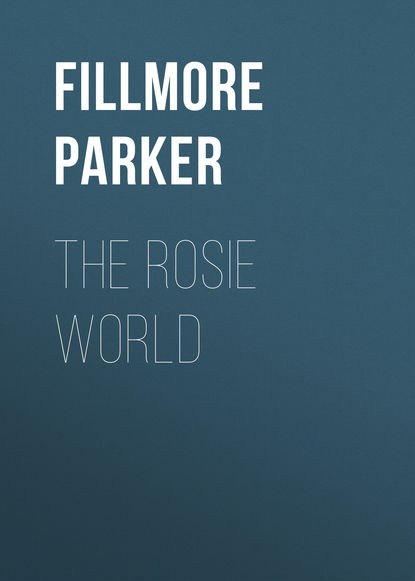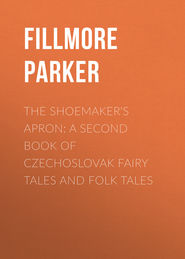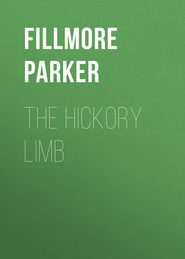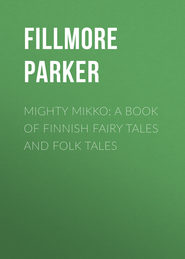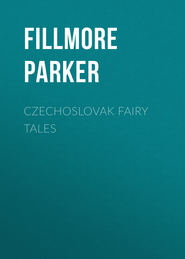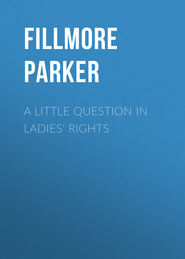По всем вопросам обращайтесь на: info@litportal.ru
(©) 2003-2024.
✖
The Rosie World
Настройки чтения
Размер шрифта
Высота строк
Поля
"Rosie dear, stop pesterin' me with your questions. Far be it from me to set child against father, and, besides, as you know yourself, he's behavin' now. What's past is past. I've said this much to you, Rosie, so's to give you a hint of the ragin' lions that these here quiet, soft-spoken little lambs of men keep caged up inside o' them. Oh, I tell you, Rosie dear, beware o' that kind of a man, for you never know when the lion in him is goin' to break loose and leap out upon you. Ah, I know what I'm sayin' to me everlastin' sorrow!"
"Why, Ma, are you crazy! Dad has never laid a finger on you, or on any one else, and you know he hasn't!"
Rosie scanned her mother's face in hope of discovering a little family joke, but Mrs. O'Brien met her gaze with sad, truthful eyes as guileless as a baby's.
"All right, Rosie dear, maybe your poor ma is crazy. But I wonder now ye've never noticed the scar on me right shoulder, nor asked the cause of it."
"What scar?"
"Have you never seen it, Rosie?"
Mrs. O'Brien began unbuttoning her waist to exhibit the scarred shoulder. Then she paused, thought a moment, and changed her mind.
"No. As ye've never noticed it, Rosie, it wouldn't be right of me to show it to you now. The sight of it might make you bitter. But you surprise me that you've never seen it. It's a foot long at least, and two fingers deep, and itches in rainy weather."
"Why, Ma!" Rose's eyes were fixed, and her mouth a round, blank question mark.
"Upon me word of honour, Rosie!"
For a moment Rosie was too shocked to go on. Then she gasped: "How – how did it happen?"
"How did it happen, do you ask? That, Rosie, is a secret that'll go with me to the grave. This much I'll tell you – 'twas made with a butcher-knife. But who gave the blow, I wouldn't confess under torture. Now, Rosie dear, don't tempt me to say another word, for I'm done."
Mrs. O'Brien lifted her head high, took a long breath, and began a serious attack on the sock.
Rosie questioned further, but in vain.
CHAPTER XV
THE BRUTE AT BAY
Her own father!.. All afternoon as she went about delivering papers, Rosie's mind kept going over this amazing revelation. Not for an instant did she question the truth of it. An exuberance of imagination very often led her mother to embroider fancifully the details of a story, but surely not this time. This time that scar, that awful scar, was evidence enough of what had taken place.
To think that Rosie had never even suspected that side of her father's nature! She shuddered at her own innocence. To her, her father had always seemed all gentleness and meekness. Gentleness and meekness, indeed! Why, with that raging lion ramping and tearing about inside of him he was little better than a wolf in sheep's clothing!
At first Rosie dreaded ever seeing him again. She doubted whether, at sight of him, she could conceal sufficiently the abhorrence that she felt. Then she began to want to see him, as one wants to see the animals in the carnivora building at feeding time. It is a racking experience, but one likes to go through it. Rosie's final decision was to take one look at the beast, hear for herself the sound of its roar, then flee it forever.
A good time to see Jamie O'Brien was after supper, in the cool of the evening, when he slipped off his shoes, unloosened his suspenders, and sat him down in the peace and quiet of the back yard. He had a broken-down old arm-chair, which he knew how to prop against the ancient little apple-tree and support with a brick at its shortest leg. For one-half hour every summer evening, when the old chair was properly braced, and his sock feet were stretched out at ease on a soap-box, Jamie O'Brien knew comfort, utter and absolute. It was the moment when, like old King Cole, he called for his pipe.
"Rosie dear, like a good child, will you bring me me pipe and a few matches?"
Rosie, busied in the kitchen over the supper dishes, always knew just when this call was coming, and always had her answer ready: "All right, Dad. Just wait till I dry my hands and I will."
Tonight she gave the usual answer in the usual cheerful tone, for she felt that it behooved her to meet deceit with deceit if she was to catch the beast unaware. So she got Jamie his pipe, and later came out again and perched on the arm of his chair.
"Say, Dad," she began.
She took a peep at him from the corner of her eye. Heaven knows he did not look fierce. He was a plain, lean, little man, of indeterminate colouring, with sparse hair, sparser mustache, and faded blue eyes, that had a patient, far-away look in them. His face was thin and worn, with lines that betokened years of labour borne steadily and without complaint. He was a silent man and passed for thoughtful, though contemplative would better express his cast of mind. He looked at things and people slowly and quietly, as if considering them carefully before committing himself. Then, when he spoke, it would be some slight remark, brief and commonplace.
When Rosie began: "Say Dad," he waited patiently. After several seconds had elapsed, he turned his head slightly and said: "Well, Rosie?"
He gave her a faint smile, and patted her hand affectionately. Ordinarily, at this place, Rosie would have slipped an arm about his neck, but tonight she held back.
"Say, Dad," she opened again, in a coaxing, confidential tone, "did you have a good run today?"
The world in general supposes, no doubt, that, to a motorman, one day's run must be much like any other. Rosie knew better.
Jamie very deliberately relit his pipe before answering. Then he said: "Yes, it was all right, Rosie."
Rosie waited, as she knew from his manner that something more would finally come. Jamie gazed about thoughtfully, then concluded: "They was a flat wheel on the rear truck."
Rosie was all sympathy. "Oh, Dad, I'm so sorry! It must ha' been horrid riding all day on a flat wheel."
Jamie took a puff or two, then announced: "I didn't mind it."
"Well, Dad, did you report it?"
Jamie scratched his head, as if in an effort to remember, and at last said: "Sure."
After a decent interval, Rosie began again: "Say, Dad, what'd you think of a man who chased his wife with a hatchet?"
Rosie thought it would be a little indelicate to come right out with butcher-knife. Hatchet was near enough, anyway. Rosie's idea was that her father would betray himself by defending the husband. When he did, she expected to tell him that she knew all. Her imagination did not carry her beyond this. She was prepared, however, for something horrible.
Jamie O'Brien turned his head almost quickly. "With a hatchet, did you say, Rosie?"
"Yes, Dad, with a hatchet."
"That's bad. And is it some one around here that we know?"
"No, it ain't anybody. I was just saying, what would you think of a man who did that?"
"And it ain't some one we know?"
With a wave of his pipe, Jamie dismissed all hypothetical hatchets, and returned to the more sensible contemplation of the sky line.
Rosie felt that she was being trifled with. She gazed at her father meaningly.
"Well, what would you say to a man who chased his wife with a butcher-knife?"
Again Jamie took an exasperating time to answer, and again his answer took the form of the question: "Is it some one we know, Rosie?"
Rosie threw discretion to the winds. "I'm sure you ought to know whether it's some one we know!"
Jamie blinked his eyes slowly and thoughtfully. "I don't seem to place him, Rosie."
Rosie left him in disgust. Brutality is bad enough, but hypocrisy is worse. She went as far as the kitchen door, then turned back. She would give him one more chance.
Again smiling, she put her arms about his neck. "Say, Dad, if you was to get awful mad at me, what would you do?"





